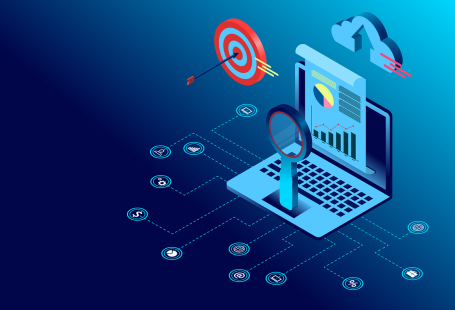In today’s digital age, where technology shapes our everyday lives, application development services play a pivotal role in driving innovation, efficiency, and accessibility. Businesses, entrepreneurs, and individuals rely on applications to connect, engage, and simplify tasks. In this article, we will explore the realm of application development services, shedding light on their significance, the development process, and their diverse applications across various industries. And kubernetes will help you with this!
The Significance of Application Development Services
Application development services are instrumental in transforming creative ideas into functional, user-friendly, and efficient applications. These services offer an array of benefits to businesses and individuals:
- Enhanced Accessibility: Applications provide a convenient means for users to access services and information, promoting better engagement.
- Streamlined Processes: Applications are designed to streamline and simplify complex tasks, ultimately increasing productivity and efficiency.
- Wider Reach: With the global availability of applications, businesses can reach a broader audience, extending their market presence.
- User-Centric Approach: Application development services prioritize user experience, ensuring applications are intuitive and user-friendly.
- Competitive Edge: Organizations that invest in custom applications gain a competitive edge by offering unique solutions tailored to their customers’ needs.
The Application Development Process
Application development is a systematic and iterative process that requires planning, coding, testing, and continuous improvement. Key stages in the application development process include:
- Conceptualization: This is where the idea for the application is conceived. It involves defining the purpose, target audience, and basic features of the app.
- Planning: Developers create a roadmap, outlining the project’s scope, budget, and timeline. They define technical requirements, select development tools, and establish a project plan.
- Design: Designers create the application’s user interface (UI) and user experience (UX), ensuring it aligns with the project’s objectives. The design phase sets the visual and functional framework for the application.
- Development: This is the core phase where developers write the code to bring the application to life. They work on the application’s functionality, ensuring that it aligns with the design and meets the desired specifications.
- Testing and Quality Assurance: Rigorous testing is essential to identify and rectify bugs, glitches, and compatibility issues. Testing may involve functional, performance, and security assessments.
- Deployment: Once the application is thoroughly tested and approved, it is ready for deployment. This includes launching the app on various platforms, such as mobile app stores, web servers, or internal company networks.
- Maintenance and Updates: The development process doesn’t end with deployment. Regular maintenance and updates are necessary to address user feedback, fix bugs, and adapt to changing technological landscapes.
Applications Across Industries
Application development services have far-reaching applications across various industries. Some examples include:
- Healthcare: Health apps for patient monitoring, telemedicine, and appointment scheduling.
- Finance: Banking and financial management apps, cryptocurrency wallets, and stock trading platforms.
- E-commerce: Online shopping and retail apps, payment gateways, and e-wallets.
- Education: E-learning apps, virtual classrooms, and language learning platforms.
- Travel and Tourism: Booking apps for flights, hotels, and local attractions, as well as navigation and translation apps.
- Entertainment: Streaming services, gaming apps, and social media platforms.
- Manufacturing and Logistics: Inventory management apps, logistics and supply chain tracking, and quality control.
Conclusion
Application development services are at the heart of the digital revolution, enabling businesses and individuals to leverage technology for enhanced productivity, accessibility, and engagement. The development process, from conceptualization to deployment and maintenance, is a complex yet highly rewarding journey. As applications continue to shape our lives, application development services will remain essential for crafting innovative, user-centric solutions across a wide range of industries.























